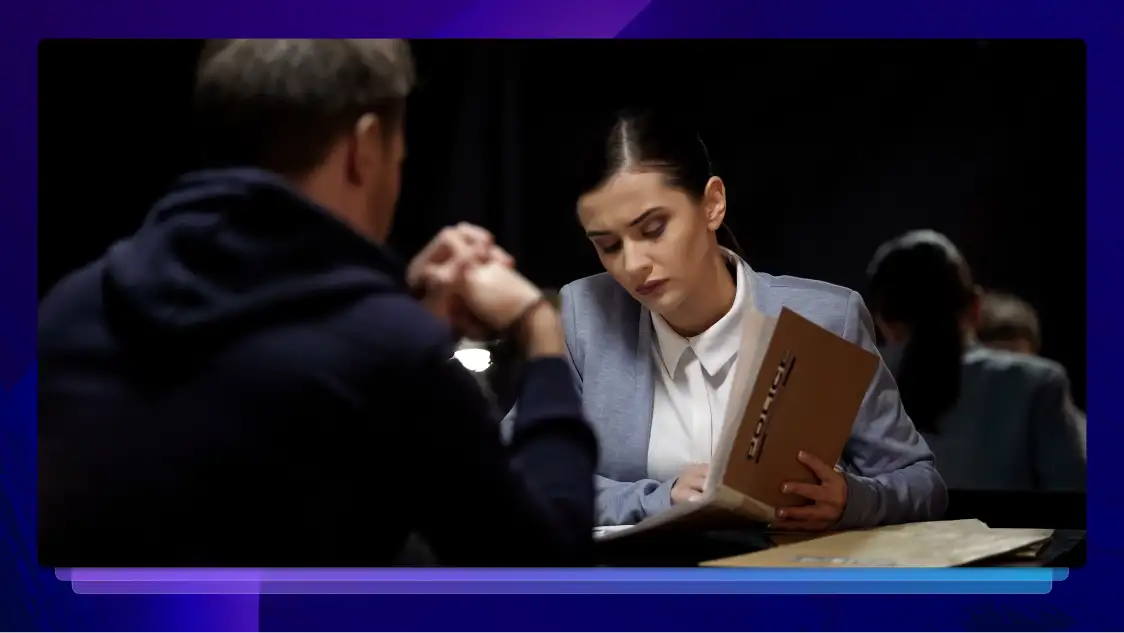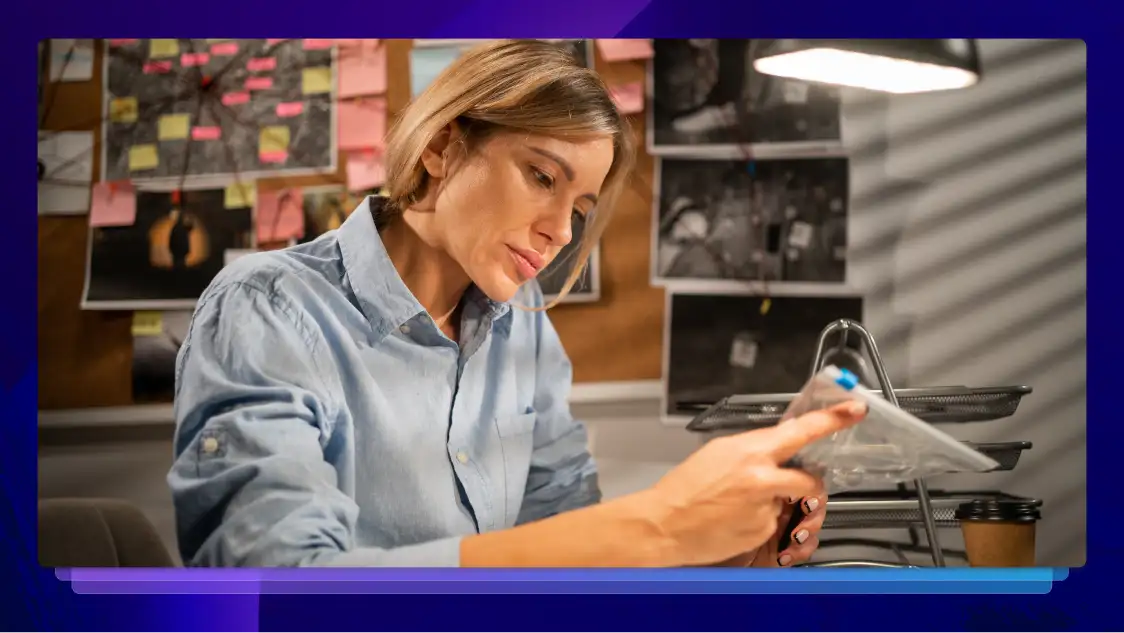What Is a Legal Transcriptionist? And Why Do You Need One?
A legal transcriptionist creates transcriptions of legal and court proceedings. Here’s a breakdown of what they do for our justice system.

A legal transcriptionist creates transcriptions of legal and court proceedings. It’s an important job that we need to function as a society!
You need a legal transcriptionist to accurately transcribe depositions, hearings, witness interviews, and important legal meetings. They can also transcribe 911 calls, help prepare legal documents, and provide dictation services. Unlike a traditional stenographer — who captures live speech — legal transcriptionists usually do their work based on audio or video recordings in a post-production capacity. A legal transcriptionist keeps the justice system honest, in a way, by ensuring that the words spoken in any court setting are captured fairly and accurately.
Why Is Legal Transcription Important?
Legal transcription is important because it accurately captures court and legal proceedings in text form, making evidence more organized and presentable. It essentially sets “in stone” what is said in a courtroom or other legal meeting, providing clarity that’s hard to capture with audio or video alone.
Accurate transcription is important because the verdict of legal cases can depend on that transcription. Imagine if a DUI case hinged on a mistake in transcription, and a defendant was accused of a blood alcohol level of 0.7 as opposed to .007. That’s a big difference, and jail time might hang in the balance. Accurate transcription ensures that the information used to prosecute and defend is correct.
Benefits of Accurate Transcription in Legal Proceedings
One of the main benefits of accurate legal transcriptions is improving productivity. A legal transcription includes timestamps, speaker IDs, and searchable dialogue that helps attorneys quickly find the information that they’re looking for, as opposed to scrubbing through hours of audio. This saves time and, essentially, money.
The ability to find the information and easily cut and paste it into organized, streamlined documents also adds clarity when presenting evidence, making courtroom proceedings more accessible and easier to understand.
How to Become a Legal Transcriber
There are three main steps to becoming a legal transcriptionist:
1. Hone Your Skills
A professional legal transcriptionist types between 50 and 75 words per minute, error-free. They pay attention to spelling, grammar, and punctuation. They work quickly and meet deadlines. Being able to hit these marks will help you succeed in your formal training. You can start practicing now by:
- Practicing your typing while trying to be as accurate as possible.
- Transcribing a wide range of audio and video, with high and low-quality sound.
- Work on your speed, aiming for 50 words per minute at first. Set 60 WPM as your ultimate goal, with 75 WPM as the stretch goal!
2. Take a Training Course
Law firms need qualified transcriptionists with very specific training. There are plenty of courses provided by colleges and vocational schools that provide this training, many available online, such as:
Reputable courses will prepare you to pass the American Association of Electronic Reporters and Transcribers (AAERT) and Certified Electronic Transcriber (CET) certification exams, which most employers would require. At the end of this training, you’ll know:
- How to transcribe legal proceedings with utmost accuracy
- How to format a legal transcript properly
- Appropriate terminology for the legal and medical industries
- Why confidentiality matters
- The basic workings of our legal system
3. Get Certified
After completing your training, you’ll need to acquire a certification, which usually entails passing an exam by the certifying body. Most positions require applicants to be certified by either the American Association of Electronic Reporters and Transcribers or the National Verbatim Reporters Association.
Each organization offers one of the two most common legal transcription certifications:
- The Certified Electronic Transcriber exam is offered by the AAERT.
- It consists of a written multiple-choice test and a practical skills test. After passing the test, you must recertify every three years to maintain your AAERT membership and keep your certification in good standing.
- To get a Certified Legal Transcriptionist certificate, you’ll be tested by the NVRA.
- The Certified Legal Transcriber exam consists of a complete transcript production of a 20-minute dictation that must be passed with 98% accuracy. There’s also a 100-question multiple-choice test.
Transcripts need to be certified too, and if you want to be a court reporter, you'll have to get certified for that as well. Learn more about that on our blog.
Legal Transcriptionist Salary
Full-time legal transcriptionist salary ranges from around $30,000 per year to over $50,000 per year. The state with the average highest salary is New Jersey at $50,692, followed by Wisconsin and Washington at $49,601 and $48,96, respectively. Thankfully, most of these jobs are fully remote, meaning you can apply out of state and possibly make more for doing the same work.
How to Practice Your Transcription Skills
Transcription is simple to start, but difficult to master. It requires practice, practice, practice, and at some point, formal training. But first, you just need to type. A lot.
To become a professional legal transcriptionist, you’ll need to type at around 50 words per minute (WPM), but 75 WPM isn’t unheard of. If you aim to type at least 60 WPM, you’ll improve your chances of passing the certification exams and landing a job. To help focus your practice, we recommend using online resources such as KeyBr and Typing Academy for 10 minutes each day.
The job is more than just typing, though. Half the job is listening, and not always to pristine audio or video recordings. Developing an ear for breaking down complicated audio is a huge part of the job, so websites like GoTranscript, or Listen and Write should be essential parts of your practice routine. They provide a diverse range of transcription samples and practice tests to hone your skills.
Legal Terms, Defined
Though legal transcribers and court reporters are in demand now more than ever, there is still some confusion about what each job entails. Allow us to clear up the confusion between a transcriptionist, stenographer, and court reporter!
A legal transcriptionist turns audio or video into readable text. This includes transcribing depositions, hearings, interviews, meetings, 911 calls, or attorney dictation. In addition, a legal transcriptionist rarely ever transcribes live. They work most often with digital reporting and remote depositions.
On the other hand, a court reporter is almost always on-site, transcribing live dialogue. A court transcription is a real-time transcription of the spoken word. However, a court reporter’s duties stretch beyond recording the proceedings. They also help control courtroom proceedings by encouraging speakers to repeat themselves or speak more clearly. A court reporter will often swear in witnesses, as well.
A stenographer bridges the gap between legal transcriber and court reporter. They are usually onsite like a court reporter, but focus on transcribing spoken words using a steno machine and a style of typing called shorthand, which is much more efficient than traditional typing.
How Long Does It Take To Provide Legal Transcriptions?
A transcriber can provide legal transcriptions within 24 hours. However, depending on the specific project and the transcriber’s workload, that timeframe can be shortened to just a few hours. Most reputable legal transcriber services offer the 24-hour maximum turnaround.
Get the Transcripts You Need, When You Need Them
Legal transcriptionists (and their AI court reporting counterparts) have never been more in demand. If you’re willing to practice and have an eye — and ear — for detail, it’s not too difficult to create a lucrative career in the legal field.
And if you’re one of the firms desperately seeking fast, accurate, and reliable legal transcription, we at Rev just might know where you can find it.















